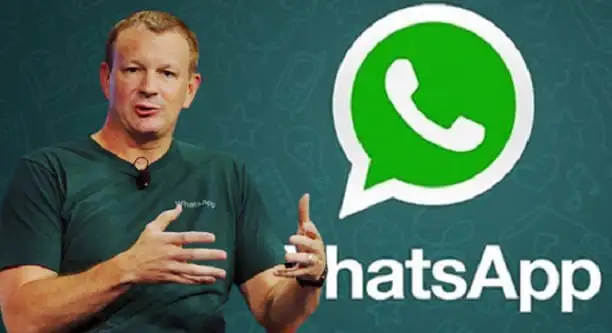Brian Acton Reveals WhatsApp Never Planned to Compete with Facebook During FTC Antitrust Trial
When WhatsApp co-founder Brian Acton testified in the ongoing antitrust trial against Meta Platforms Inc., he made a statement that quickly caught the attention of tech watchers and regulators alike: “WhatsApp never had any plans to compete with Facebook.”

Acton’s comments, which came during the sixth week of the U.S. Federal Trade Commission’s (FTC) high-stakes antitrust case against Meta, shed new light on the dynamics between the messaging platform and its parent company. The FTC alleges that Meta, the tech giant that owns Facebook, Instagram, and WhatsApp, has used its power to unfairly dominate the social media and messaging markets.
But Acton’s remarks tell a different story — one about a startup focused on simplicity and privacy, not competition.
WhatsApp’s Original Vision Was Never About Rivalry
When Brian Acton and Jan Koum founded WhatsApp in 2009, their goal was straightforward: to create a simple, reliable messaging service free from ads and unnecessary clutter. In fact, Koum famously taped a note to his desk that read, “No ads! No games! No gimmicks!” The vision was clear — provide users with a private, secure, and ad-free communication platform.
According to Acton, at no point did they view Facebook as a competitor. Instead, WhatsApp was built with a completely different philosophy. While Facebook thrived on social networking, timelines, and algorithm-driven engagement, WhatsApp focused solely on messaging and user privacy.
“Our aim was not to enter into competition with Facebook,” Acton explained in his testimony. “We wanted to remain a simple, user-focused messaging app.”
The 2014 Meta Acquisition: A Turning Point
Facebook (now Meta) acquired WhatsApp in 2014 for a whopping $19 billion — one of the largest tech acquisitions in history. At the time, the move was seen as a way for Facebook to solidify its dominance in the communication space, especially among users in regions like India, Brazil, and Africa, where WhatsApp was growing rapidly.
Acton acknowledged that the acquisition was both a business opportunity and a risk. While it gave WhatsApp access to greater infrastructure and scale, it also placed the company under the umbrella of a platform with very different priorities — particularly when it came to data and monetization.
One of the core concerns Acton and Koum had post-acquisition was Facebook’s push to monetize WhatsApp through advertising and user data — a direction that clashed with their original vision. This tension ultimately led both founders to leave the company within a few years of the acquisition.
Acton’s Exit and Criticism of Meta
Brian Acton left WhatsApp in 2017 and later became one of the most vocal critics of Facebook’s practices. He famously tweeted “#DeleteFacebook” in 2018 after the Cambridge Analytica scandal, signaling his disapproval of the company’s handling of user data and privacy.
His latest comments during the FTC trial reinforce his long-held belief that Meta’s goals are fundamentally misaligned with WhatsApp’s founding principles. He emphasized that even at the time of acquisition, WhatsApp was never meant to compete with Facebook’s core products like the social feed or photo sharing. It was, and still is, a tool for direct communication.
What This Means for the FTC’s Case
The FTC’s antitrust case argues that Meta has systematically eliminated competition by acquiring potential threats like WhatsApp and Instagram. Acton’s testimony presents an interesting wrinkle: if WhatsApp was never designed to compete with Facebook, does its acquisition still qualify as an anti-competitive move?
Legal experts suggest that even if WhatsApp wasn’t a direct competitor, its growing user base and strong privacy reputation made it a potential long-term threat to Facebook’s business model. By acquiring WhatsApp, Meta ensured control over a fast-growing platform and prevented future disruption.
The FTC’s challenge is to prove that Meta’s pattern of acquisitions has stifled innovation and reduced consumer choice — even if the acquired companies weren’t immediate competitors.
The Bigger Picture: Tech Giants Under the Microscope
Acton’s testimony arrives at a time when governments around the world are reevaluating how tech giants operate. From Europe’s Digital Markets Act to the U.S. government’s efforts to regulate big tech, the pressure is mounting.
Meta, in particular, has faced criticism for its centralized control over communication platforms. With billions of users spread across Facebook, Instagram, Messenger, and WhatsApp, the company holds unprecedented influence over how people connect and share information.
Critics argue that this concentration of power stifles innovation, discourages competition, and threatens privacy — especially when monetization strategies rely on harvesting user data.
Conclusion: A Reminder of WhatsApp’s Origins
Brian Acton’s testimony serves as a powerful reminder of WhatsApp’s original mission: private, user-first communication. It also highlights the internal conflicts that arose once the app became part of a tech giant with different goals.
As the FTC continues its trial against Meta, Acton’s words could influence the court’s perspective on how tech acquisitions shape the digital landscape. Whether or not WhatsApp ever intended to compete with Facebook may not change the outcome, but it certainly adds depth to the story.
For users, it’s a moment to reflect on how their favorite apps have evolved — and who’s really in control of the platforms they use every day.






